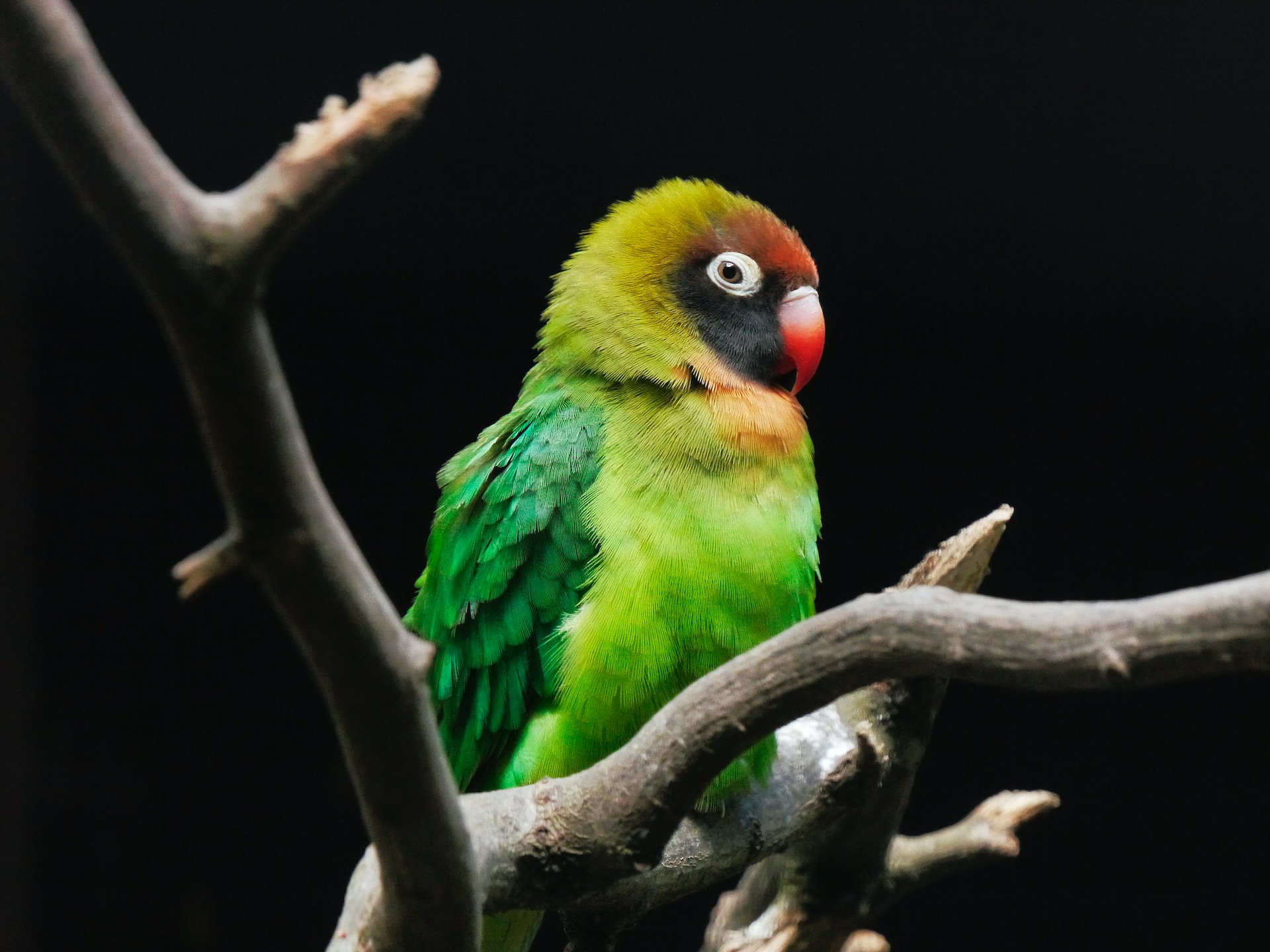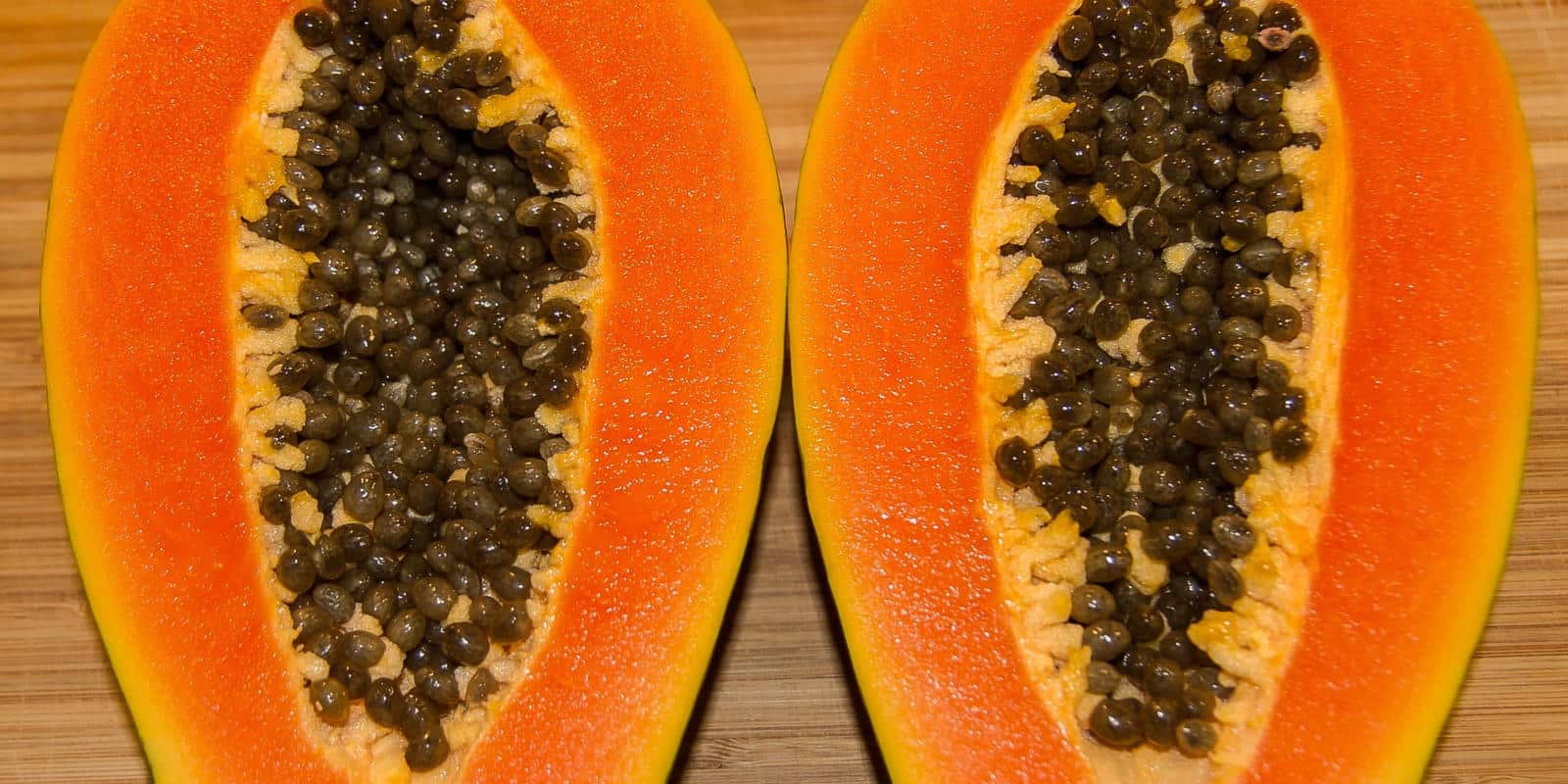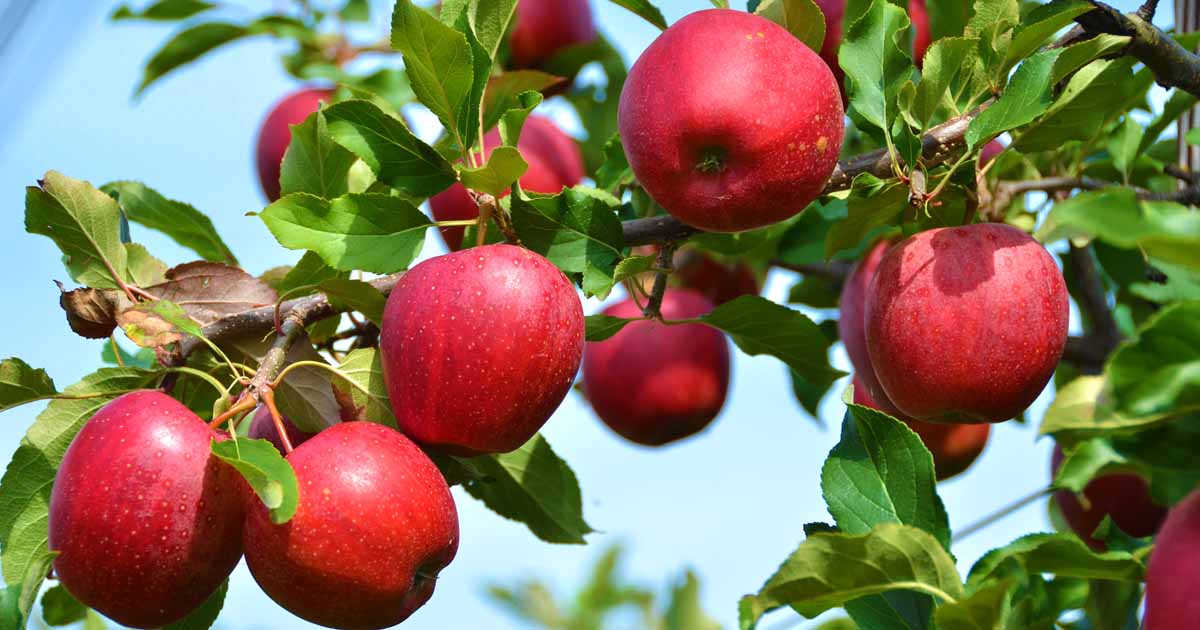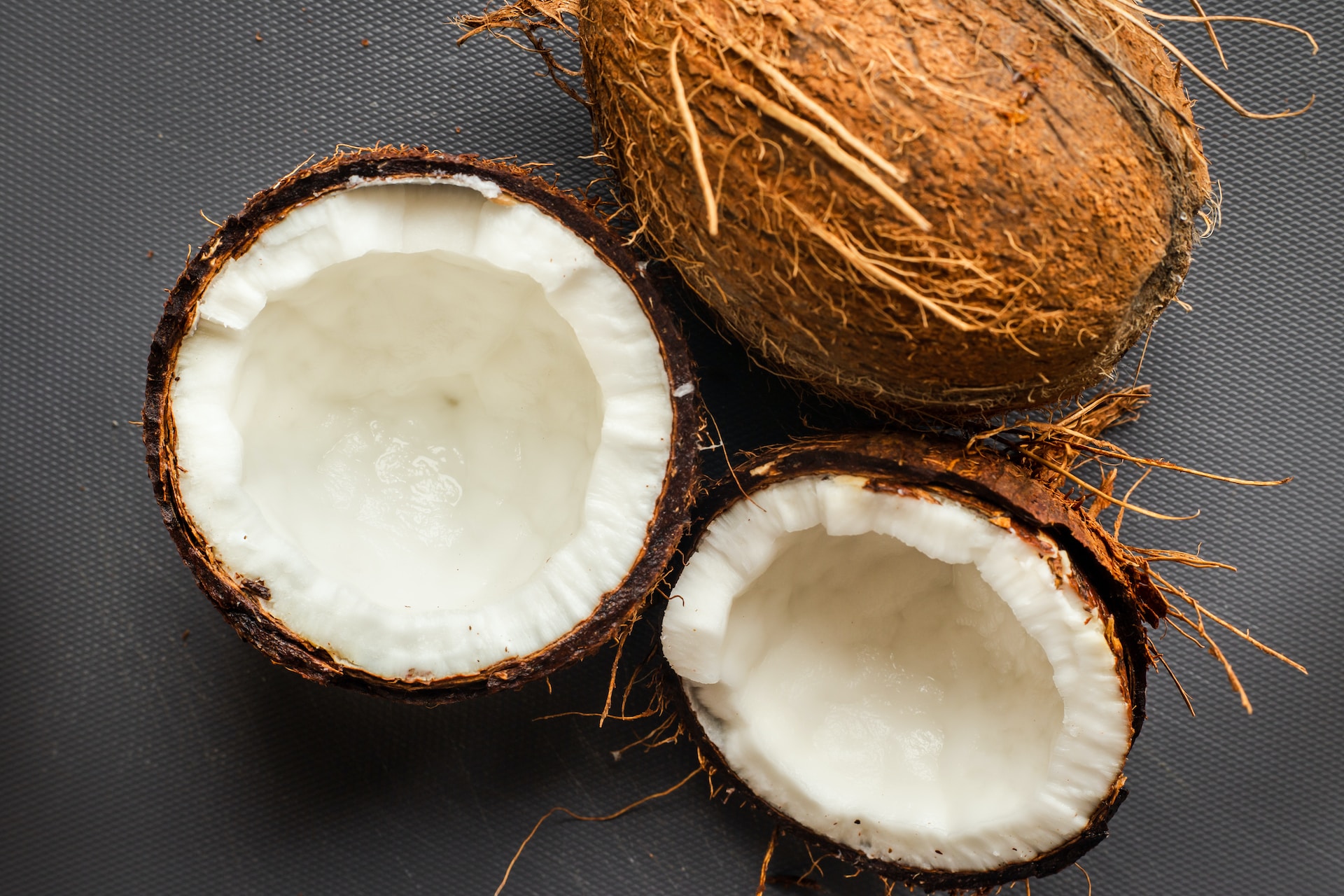What Fruits Can Lovebirds Eat For Nutritional Variety?
Lovebirds are not only known for their affectionate nature but also for their diverse dietary needs. A crucial aspect of keeping these vibrant and colorful parrots healthy and happy is providing them with a well-balanced diet. In this article, we will explore the question, "What Fruits Can Lovebirds Eat?"
Author:Velma BattleReviewer:Michael RachalNov 08, 202313.7K Shares185.9K Views

Lovebirds are not only known for their affectionate nature but also for their diverse dietary needs. A crucial aspect of keeping these vibrant and colorful parrots healthy and happy is providing them with a well-balanced diet. In this article, we will explore the question, "What Fruits Can Lovebirds Eat?"
Fruits are a delightful and nutritious addition to their diet, offering a wide range of essential nutrients that can contribute to their overall well-being. So, let's delve into the world of lovebird nutrition and discover the fruits that can add a burst of flavor and nutritional variety to their diet.
Can Lovebirds Eat Cantaloupe?
Cantaloupe is a safe option for lovebirds, and this extends to all varieties of melons such as honeydew, galia, horned melon, bitter melon, piel de sapo, and more. Your bird can enjoy them all.
Not only is the flesh of these melons suitable for your lovebird, but the seeds are also entirely safe. In the case of organic melons, even the rind is safe, though your bird may find it more interesting to chew on than to consume.
Can Lovebirds Eat Cherries?
Lovebirds can enjoy cherries as long as the pits have been carefully removed. This precaution is essential because stone fruit pits contain toxins, although, fortunately, small parrots like Agapornis species lack the capability to crack these pits and access the harmful components.
All varieties of stone fruit, including cherries, are safe for your parrot when the pits are eliminated. This category includes fruits like peaches, plums, apricots, nectarines, and mangoes, among others. While they tend to be higher in sugar content, our feathered companions often have a fondness for them.
Can Lovebirds Eat Watermelon?
Indeed, lovebirds can partake in watermelon, including its seeds. Watermelon is abundant in essential vitamins such as vitamins A, B1, and C.
It's important to remove the rind, as this part of the watermelon is more likely to have been in contact with pesticides and other chemicals. However, if you've purchased organic watermelon, you can leave the rind on, as it is technically edible.
Can Lovebirds Eat Pineapple?
Certainly, parrots can consume all parts of a pineapple, but it's advisable to peel non-organic pineapples. If it's an organic pineapple, even the leaves are technically safe, and your lovebird might find them enjoyable to chew. The core and skin are also suitable for consumption.
If your lovebird hasn't had pineapple before, introduce it gradually as it is relatively acidic. Pineapple contains an enzyme called bromelain, which, in excessive amounts, can lead to digestive discomfort.
Can Lovebirds Eat Pears?
Of course! Your lovebird can enjoy some pear without any issues. Opt for organic pears and consider leaving the skin on, as it's rich in fiber and packed with nutrients that are beneficial for our avian companions.
Similar to stone fruits, it's crucial to take out the pear pits before offering them to your bird. While one or two pits may not be immediately harmful, it's always wise to err on the side of caution.
Can Lovebirds Eat Papaya?
Indeed, lovebirds can consume all parts of the papaya fruit. While some sources may suggest that the seeds are not safe, this is not accurate. In reality, the seeds are edible and have a mild taste. However, it's essential to ensure that the papaya is fully ripe.
Unripe fruits, especially the skin, may contain latex, which can lead to digestive problems. There are numerous papaya varieties available for you and your parrot to explore and enjoy together!
Can Lovebirds Eat Mango?
Certainly, when enjoying mango, you can offer some to your lovebird. The pesticide-free mango skins are also edible, so you can include them when serving the fruit to your bird.
Providing your parrots with the mango pit for play and a snack is a common practice. There is typically some remaining flesh on the pit, and parrots tend to relish scraping away every last bit of it.
Can Lovebirds Eat Blueberries?
Certainly, blueberries have earned their "superfood" status for good reason; they are packed with beneficial antioxidants, vitamin C, fiber, and other natural nutrients. Your lovebird will certainly delight in nibbling on a blueberry or two!
In addition to blueberries, your lovebird can also enjoy cranberries, huckleberries, currants, gooseberries, and an array of other berries. Essentially, if a berry is safe for humans to consume, it's typically safe for your parrot as well. So, whatever you have growing in your garden, don't hesitate to share it with your feathered companion.
Can Lovebirds Eat Pomegranate?
Certainly, your lovebird can enjoy some pomegranate, although be prepared for a little mess. Lovebirds often relish the juicy seeds, but things might get a bit untidy.
The skin and white flesh of a pomegranate are also suitable for parrots, including lovebirds. If your lovebird is accustomed to foraging, you can expose a portion of the seeds and let it explore the rest of the fruit on its own. It can be a source of hours of entertainment and engagement!
Can Lovebirds Eat Grapes?
Grapes can be a nutritious treat for lovebirds, but it's important to offer them in moderation because of their sugar content. They are rich in essential nutrients such as vitamins B1, B6, C, and K.
Additionally, grapes possess anti-inflammatory properties that may contribute to reducing the risk of various healthissues and ailments. Lovebirds can also enjoy raisins, which are essentially dried grapes. When providing dried fruits to your feathered friends, it's crucial to choose a brand that contains no added sulfites or sugar.
Can Lovebirds Eat Apples?
Lovebirds can enjoy a slice of apple as a delightful treat. However, it's crucial to remove the core and ensure there are no seeds in the apple slice, as the seeds can be harmful to birds.
Apples can be a part of their diet in moderation. While they do contain a fair amount of sugar, they also provide essential nutrients such as vitamin C, along with copper, manganese, and potassium.
Can Lovebirds Eat Peaches?
Absolutely, both peaches and nectarines are suitable for lovebirds. Your bird might savor the juicy texture, especially if you've chosen organic peaches, in which case the skin can be left on.
While it may be unlikely for a lovebird to crack a peach stone, it's essential to remove the pits before feeding them. The pits of all stone fruits contain a compound that, when processed by the body, can convert into cyanide, which is toxic.
Can Lovebirds Eat Oranges?
Lovebirds can partake in citrus fruits such as oranges and tangerines, but it should be done in moderation. These fruits are abundant in Vitamin C, which plays a vital role in bolstering the immune system. Moreover, their properties have been associated with promoting heart health in both humans and animals.
When offering your bird oranges and tangerines, be sure to peel them first. This precaution is essential because the outer skin of the fruit might have come into contact with pesticides that could be detrimental to birds.
Can Lovebirds Eat Guava?
Yes, lovebirds can eat guava in moderation. Guava is a safe and healthy fruit for lovebirds when given as an occasional treat. It provides essential vitamins and nutrients like vitamin C, vitamin A, and dietary fiber.
However, it's important to remember that guava, like many other fruits, should only be a small part of your lovebird's diet. Lovebirds primarily need a balanced diet of commercial bird food or pellets, along with fresh vegetables, and some fruits like guava can be given as a supplement.
Can Lovebirds Eat Blackberries?
Berries, in general, serve as fantastic treats for lovebirds, though they can be a bit messy. If your parrot ends up with a berry-induced appearance resembling a crime scene, don't fret - a bath can remedy that later.
Despite the potential mess, blackberries, in particular, offer exceptional nutritional benefits for lovebirds. They are rich in vitamins such as vitamin C and vitamin K, and they also provide manganese, which aids lovebirds in more efficient food metabolism.
Can Lovebirds Eat Coconut?
Fresh coconut can be an especially delightful treat for lovebirds. Due to its high-fat content, it's best served in moderation. However, if you've recently cracked one open, it's perfectly fine to share a small portion.
Ensure you avoid coconut cream and coconut products with added artificial sweeteners. Dehydrated and desiccated coconut is acceptable in limited quantities, as long as they are free of added sugars.
Can Lovebirds Eat Bananas?
Peeled bananas are a delightful treat for lovebirds and are frequently a popular choice! They are a good source of potassium and fiber, which support digestive health. You can serve bananas in their natural state, either sliced or mashed.
Plantains are another advantageous treat for lovebirds. However, it's recommended to cook them by boiling them in water before serving, as they can be somewhat challenging to digest in their raw state.
Can Lovebirds Eat Strawberries?
Strawberries can serve as a wholesome, occasional treat for lovebirds. Due to their sugar content, it's advisable to provide them sparingly, but they do provide other valuable nutrients. These red berries are a source of vitamins C and K, along with potassium.
Interestingly, strawberry tops, often discarded, can also be an excellent snack for your lovebird. They are relatively lower in sugar and calories compared to the actual berries and are rich in micronutrients. Instead of throwing them away, consider offering these tops to your feathered friend!
Unsafe Fruits For Lovebirds
While lovebirds can enjoy a wide variety of fruits as part of their diet, it's important to be aware of fruits that can be unsafe for them. Some fruits can pose health risks to lovebirds due to their specific properties or components. Here are a few fruits that are generally considered unsafe for lovebirds:
Avocado
Avocado is a highly toxic fruit for birds, including lovebirds. It contains a substance called persin, which can lead to severe health issues and even death if ingested.
Citrus Fruits
Citrus fruits like oranges, lemons, and grapefruits can be too acidic for lovebirds and may lead to digestive problems or irritation.
Rhubarb
Rhubarb, including its leaves and stems, contains oxalates, which can be toxic to birds if consumed in large quantities.
Fruit Pits And Seeds
Many fruit pits, such as those in cherries, peaches, and apricots, contain cyanide compounds and should always be removed before offering the fruit to lovebirds.
Unripe Or Green Tomatoes
Unripe or green tomatoes contain solanine, which is harmful to birds and can cause digestive issues.
Sugary Or High-Fat Fruits
Fruits that are exceptionally high in sugar or fat content, such as figs and dates, should be given in moderation as they can lead to obesity and other health problems.
Tropical Fruits With Large Seeds
Some tropical fruits, like mangos, have large, hard seeds that can be challenging for lovebirds to consume and pose a choking hazard.
It's crucial to exercise caution and provide a balanced diet for your lovebird, focusing on safe and bird-friendly fruits and vegetables. When introducing a new fruit to your lovebird's diet, it's a good practice to do so in small amounts to ensure they tolerate it well and don't experience any adverse reactions. Always consult with an avian veterinarian or a bird specialist for specific dietary recommendations tailored to your lovebird's needs.
What Fruits Can Lovebirds Eat? - FAQ
What Type Of Fruit Do Lovebirds Eat?
Some of the most common fruits that pet owners feed their birds are bananas, citrus, berries, mangoes, kiwis, grapes, plums, pears, and watermelon. Almost all fruits are okay for lovebirds; just ensure that any poisonous seeds are removed (specifically in apples).
Can Lovebirds Eat Boiled Eggs?
Some birds even enjoy a small amount of lean cooked meat, fish, cooked egg, or very small amounts of cheese, occasionally. "Dairy products should be consumed in moderation, as birds are lactose-intolerant."
What Is Lovebird's Favourite Food?
In the wild, lovebirds feed on seeds, berries, fruits, grains, grasses, leaf buds, and agricultural crops of corn, maize, and figs. A lovebird's diet will consist of 1 1/2 to 2 ounces (45-60 grams) of feed daily for a single bird.
Conclusion
Understanding the question "What fruits can lovebirds eat?" becomes pivotal in promoting the health and vitality of these beloved avian companions. A balanced diet enriched with a diverse selection of fruits not only caters to their nutritional needs but also keeps mealtime exciting and enjoyable for your lovebird.
It's crucial to monitor their preferences and consult with avian experts to curate a fruit selection that offers the optimal blend of vitamins, minerals, and antioxidants. By prioritizing the well-being of your lovebird through a varied and nutritious diet, you're bound to witness the vibrant plumage, chirpy melodies, and boundless affection that make lovebirds such treasured companions.
Jump to
Can Lovebirds Eat Cantaloupe?
Can Lovebirds Eat Cherries?
Can Lovebirds Eat Watermelon?
Can Lovebirds Eat Pineapple?
Can Lovebirds Eat Pears?
Can Lovebirds Eat Papaya?
Can Lovebirds Eat Mango?
Can Lovebirds Eat Blueberries?
Can Lovebirds Eat Pomegranate?
Can Lovebirds Eat Grapes?
Can Lovebirds Eat Apples?
Can Lovebirds Eat Peaches?
Can Lovebirds Eat Oranges?
Can Lovebirds Eat Guava?
Can Lovebirds Eat Blackberries?
Can Lovebirds Eat Coconut?
Can Lovebirds Eat Bananas?
Can Lovebirds Eat Strawberries?
Unsafe Fruits For Lovebirds
What Fruits Can Lovebirds Eat? - FAQ
Conclusion

Velma Battle
Author
Travelling Expert

Michael Rachal
Reviewer
Travelling Expert
Latest Articles
Popular Articles


